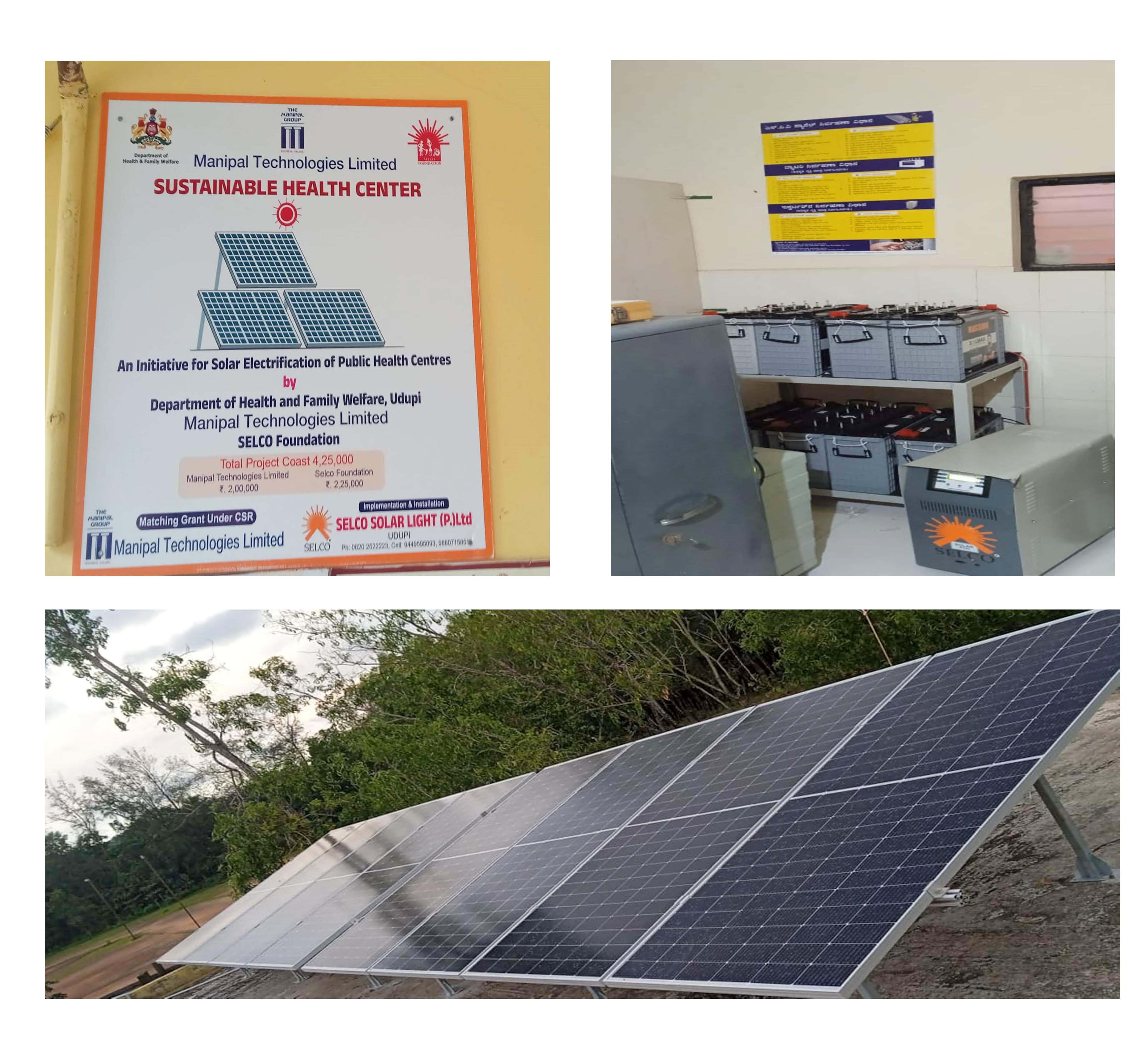Introduction
Udupi, a
district in Karnataka, has achieved a significant milestone by successfully
solarising all its Primary Health Centres (PHCs). This initiative, which is
unique to Udupi in the state, was made possible through an innovative approach
that leveraged Corporate Social Responsibility (CSR) funds in a matching grant
model, in collaboration with the SELCO Foundation. The project involved the
installation of 5 kV solar power plants in all 59 PHCs, transforming the energy
sustainability of rural healthcare infrastructure across the district.
Project Conception and Implementation
The solarisation project was conceived two years ago, beginning with a pilot installation in one PHC funded by a small matching grant from a donor. The initiative was spearheaded by Dr. Nagabhushan Udupa, the then District Health Officer (DHO), who envisioned extending the project to cover all PHCs in the district. The initial phase, involving the first 4-5 PHCs, faced challenges due to the unfamiliarity with the matching grant concept. However, the successful implementation and operation of these initial solar systems provided valuable insights and demonstrated the viability of the approach.
Building on these early successes, the Health Department intensified its efforts to secure CSR funding for the matching grants required to solarise additional PHCs. Dr. Prashant Bhat, District Vector Borne Diseases Control Officer (DVBDCO) of Udupi, played a pivotal role in mobilizing CSR funds, while the District Administration provided essential support and guidance throughout the process.
The current DHO, Dr. I P Gadad, continued the project with unwavering commitment, ensuring its expansion and completion. The final PHC was solarised in July 2024, marking the completion of the project within a span of 23 months, covering the entire district's primary health centres.
Funding Model
The total cost of the solarisation project was ₹2.6 crores. The SELCO Foundation, known for its expertise in promoting sustainable energy, contributed 50% of the funds, amounting to ₹1.46 crores. The remaining 50% was raised through CSR contributions from various donors, totalling ₹1.14 crores. This matching grant model, though initially challenging to implement, proved to be a successful and scalable funding strategy, enabling the widespread adoption of solar energy in Udupi’s PHCs.
Figure 1. The summary of Solar Project for Primary Health Centres in Udupi
Benefits of Solar Energy in Health
Institutions
The transition to solar energy in Udupi’s PHCs has delivered substantial benefits, particularly in rural healthcare settings where power supply can be inconsistent. The experiences of the health institutions underscore the impact of this project:
1. Uninterrupted Power Supply: The solar installations have provided a reliable and continuous power supply, which is critical for maintaining the cold chain necessary for vaccine storage. This has ensured that vaccines are protected from spoilage, directly contributing to better public health outcomes.
2. Support in Medical Procedures: The solar power systems have been invaluable in minor operation theatres, delivery rooms, and procedure rooms. The availability of a stable power supply has allowed these facilities to conduct essential medical procedures without the risk of power interruptions, enhancing the quality of care provided.
3. Operation of Essential Equipment: The solar systems have ensured that crucial medical equipment, such as autoanalysers in laboratories and suction apparatus in emergency rooms, remain operational even during power outages. This reliability has improved the overall efficiency and effectiveness of healthcare delivery, particularly in emergency situations.
4. Cost Savings: The implementation of solar power has led to a 60% reduction in electricity expenses across the PHCs. These savings have been redirected towards improving patient care, purchasing medical supplies, and further enhancing the health infrastructure.
5. Environmental Impact: By reducing reliance on conventional electricity sources, the project has also contributed to lowering the carbon footprint of the health centres, aligning with broader goals of environmental sustainability.
Conclusion
The solarisation of all Primary Health Centres in Udupi is a testament to the power of innovative funding models, strategic partnerships, and visionary leadership. From its inception as a small pilot project to its expansion across the entire district, the initiative has transformed the energy landscape of rural healthcare in Udupi. The project not only provides a model for other districts to follow but also underscores the importance of sustainable energy solutions in enhancing public health infrastructure. Through the combined efforts of dedicated individuals and supportive institutions, Udupi has set a new standard for integrating renewable energy into healthcare services, benefiting both the environment and the community at large.




Comments 0 Like 0 Dislike 0